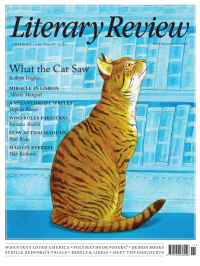Michael Delgado
Lie Back & Think of Zanzibar
Summerwater
By Sarah Moss
Picador 202pp £14.99
It sometimes seems like brevity is an undervalued quality in publishing today, but for Sarah Moss it is becoming something of a signature. Her previous novel, 2018’s Ghost Wall, is a taut, devastating work that clocks in at just over 150 pages. Offbeat yet knowingly zeitgeisty, it tells the story of Silvie, a teenager who, at the behest of her difficult father, is forced to spend her summer holiday camping in the Northumberland wilderness, re-enacting Iron Age life.
Summerwater ventures further north, into Moss’s native Scotland (she was born in Glasgow but moved to Manchester as a young child). It’s another remarkable feat of economy. Set in a drizzly Highlands cabin park on the longest day of the year, it follows twelve holidaymakers as they either sit indoors feeling miserable or venture outside to escape their bickering, stifling, boring families. We meet Justine, who, damned to sleepless nights by her husband’s ‘own insomniac walrussing’, gets up at dawn to go for a run up a nearby mountain, during the course of which it becomes unclear whether or not she’ll ever return home (‘she could have kept going’, the chapter title informs us, wryly). There’s also, among others, Becky, a teenager cooped up with her family who has taken to repeating the refrain ‘I want to be dead’ to herself as she scrubs burnt fish off a baking tray, and Claire, a mother of two, who, gifted an hour’s break from childcare by her husband, finds she has forgotten how to relax.
Most of the novel is pleasantly low key: the action tends to go on in these characters’ heads and the mundanity of their thoughts about bread rolls and sink mildew feels well suited to the bare surroundings. Moss is a master of the stream of consciousness precisely because she recognises

Sign Up to our newsletter
Receive free articles, highlights from the archive, news, details of prizes, and much more.@Lit_Review
Follow Literary Review on Twitter
Twitter Feed
It wasn’t until 1825 that Pepys’s diary became available for the first time. How it was eventually decrypted and published is a story of subterfuge and duplicity.
Kate Loveman tells the tale.
Kate Loveman - Publishing Pepys
Kate Loveman: Publishing Pepys
literaryreview.co.uk
Arthur Christopher Benson was a pillar of the Edwardian establishment. He was supremely well connected. As his newly published diaries reveal, he was also riotously indiscreet.
Piers Brendon compares Benson’s journals to others from the 20th century.
Piers Brendon - Land of Dopes & Tories
Piers Brendon: Land of Dopes & Tories - The Benson Diaries: Selections from the Diary of Arthur Christopher Benson by Eamon Duffy & Ronald Hyam (edd)
literaryreview.co.uk
Of the siblings Gwen and Augustus John, it is Augustus who has commanded most attention from collectors and connoisseurs.
Was he really the finer artist, asks Tanya Harrod, or is it time Gwen emerged from her brother’s shadow?
Tanya Harrod - Cut from the Same Canvas
Tanya Harrod: Cut from the Same Canvas - Artists, Siblings, Visionaries: The Lives and Loves of Gwen and Augustus John by Judith Mackrell
literaryreview.co.uk